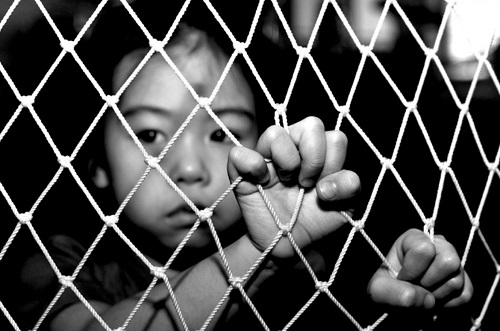Reuters photo
Via
UNICEF
Approximately 28 per cent of identified victims of trafficking globally are children, UNICEF and the Inter-Agency Coordination Group against Trafficking (ICAT) stated following Monday’s World Day against Trafficking in Persons. Across regions such as Sub-Saharan Africa, Central America and the Caribbean, children account for an even higher proportion of identified trafficking victims, at 64 and 62 per cent respectively.
UNICEF and ICAT believe the number of children who fall victim to trafficking is higher than current data suggests. The reality is that children are infrequently identified as victims of trafficking. Few come forward for fear of their traffickers, lack of information about their options, mistrust of authorities, fear of stigma or the likelihood of being returned without any safeguards and limited material support.
Refugee, migrant and displaced children are especially vulnerable to trafficking. Whether they are escaping war and violence or pursuing better education and livelihood opportunities, too few children find pathways to move regularly and safely with their families. This increases the likelihood that children and their family members will turn to irregular and more dangerous routes, or that children will move on their own, leaving them more vulnerable to violence, abuse, and exploitation by traffickers.
“Trafficking is a very real threat to millions of children around the world, especially to those who have been driven from their homes and communities without adequate protection,” said UNICEF Executive Director Henrietta Fore. “These children urgently need governments to step up and put measures in place to keep them safe.”
In many contexts, there is a lack of sustainable solutions for child victims of trafficking – including long-term assistance, rehabilitation, and protection. Many child protection systems remain under-resourced, and there is an acute lack of guardianship and other alternative care arrangements. Children are often placed in inadequate shelters, where they risk further traumatization and re-victimization. Trafficked boys can face additional challenges, as gender stereotypes can prevent them from getting or seeking the help they need, while girls may also be at risk of further exploitation and abuse due to gender discrimination and gendered poverty.
The UN children’s agency and ICAT continue to call for the implementation of government policies and cross-border solutions to keep these children safe, including:
- Expanding safe and legal pathways for children to move with their families, including by accelerating refugee status determinations and addressing obstacles in law and practice that prevent children from reuniting with their families;
- Strengthening child and social protection systems to prevent, identify, refer, and address cases of trafficking, violence, abuse, and exploitation against children and respond to children with specific needs based on age and gender;
- Ensuring that sustainable solutions are guided by an individual assessment of the child’s case and best interests determination (BID), regardless of the child’s status, and that the child participates in this process to a degree appropriate to her / his age and maturity;
- Improving cross-border collaboration and knowledge exchange between and among border control, law enforcement and child protection authorities, and implement faster family tracing and reunification procedures and alternative care arrangements for children deprived of parental care.
- Avoiding measures which may push children to choose riskier routes and to move alone to avoid detection by law enforcement.
UNICEF works in some of the world’s toughest places, to reach the world’s most disadvantaged children. Across 190 countries and territories, we work for every child, everywhere, to build a better world for everyone.



No Comments Yet!
You can be first to comment this post!